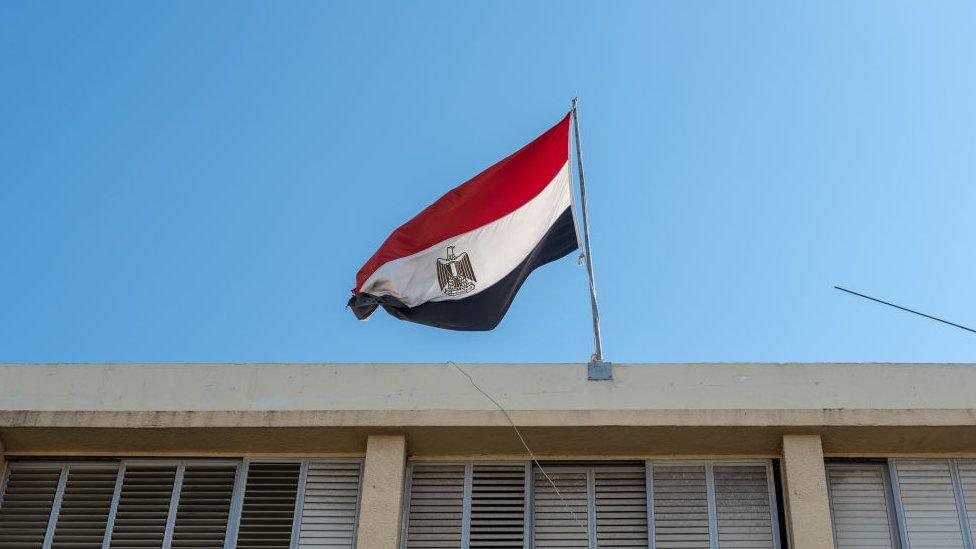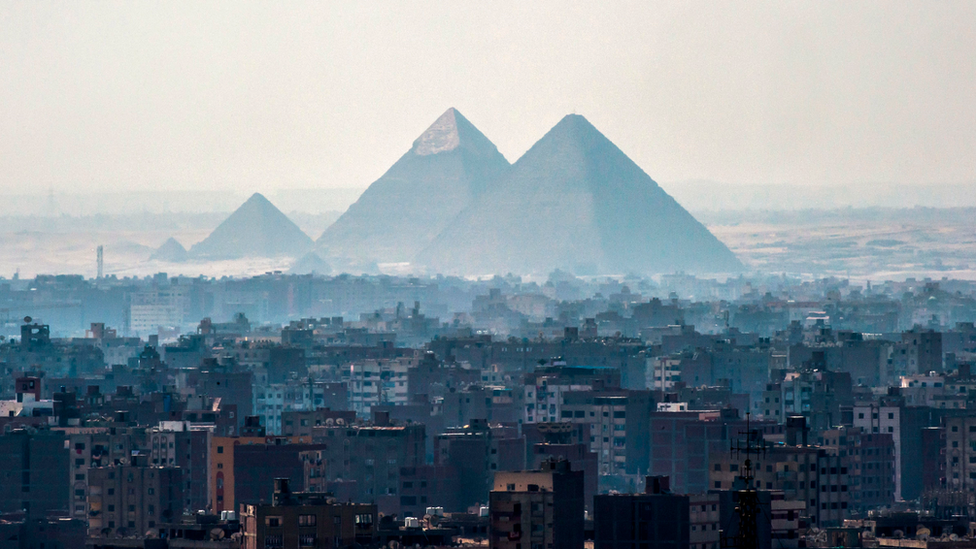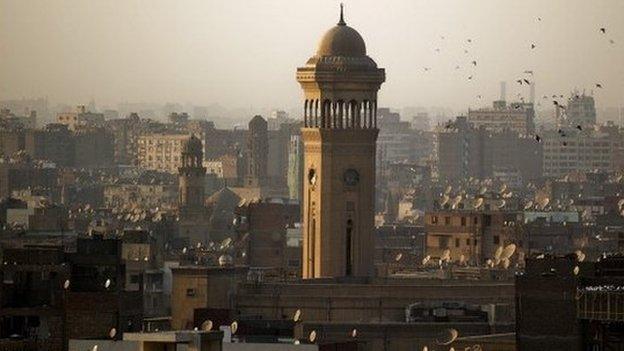Egypt releases students held after exams protests
- Published

Authorities reportedly released the students after about 12 hours
The Egyptian authorities have released dozens of high school students detained for several hours after protesting against a new electronic exam system.
Students had gathered outside schools in a number of provinces, saying their futures were being jeopardised.
Egypt has insisted students take final exams on tablet devices.
But the students said technical issues and poor internet connection stopped them accessing the tests. They eventually had to sit them on paper.
Their protest gatherings - which reportedly took place in cities including Cairo, Suez, Gharbia and Ismailia - soon evolved into skirmishes with police.
'Arrested at 15'
"Security forces started beating the girls. When the boys intervened to protect their female schoolmates, they got slapped, punched and kicked. All the students were then taken to police custody," human rights lawyer Maha Ahmed told the BBC.
The BBC tried to contact some of the students' parents but they refused to speak to the media. Ms Ahmed, who has been in touch with the families, warned that the violence could have a permanent impact on these children.
"One of the boys says when he grows up, he will tell his children that he was first arrested when he was 15, only because he was worried about his future," Ms Ahmed said.
Pictures and videos showing an aggressive police approach towards the high school children have circulated on social media, although many are unverified.
But the Egyptian interior ministry denied any wrongdoing and said the material on social media was inaccurate.
"The pictures go back to 2015. Besides, the men featured in the pictures, in plain clothes, don't belong to the police," the statement said.
Over the past five years, the Egyptian authorities led by military-backed President Abdul Fattah al-Sisi has largely restricted anti-government demonstrations. Critics say it has become increasingly intolerant of any form of opposition.
'Government should listen'
Ms Ahmed said she was glad the students did not spend the night in police stations and called on the education ministry to listen to the students' complaints. "They should despatch envoys to different schools to talk to the children," she said.
Education Minister Tariq Shawky has long defended the new system, which he says "encourages critical thinking and creativity".
"It's not just about technology, but rather about the new content, which enhances the students' competitive skills," he added.
Egypt ranks poorly when it comes to education. In public schools - which serve the majority of Egyptians - classes are largely overcrowded and many buildings are in a very poor state.
"If I had a budget, I would devote most of it to preparing good teachers. It takes a lot to have a good teacher," education expert Sara Osama told the BBC.
Although she acknowledges the new system is far better than the old one, she believes there's a long list of priorities that should come before using a tablet.
She says such a large-scale change should not have been implemented all over the country at the same time. Many have blamed the country's poor internet infrastructure for the problems.
Ms Osama also said the authorities should have had a dialogue beforehand with teachers, students and parents to explain the system. "Change can sometimes be scary," she said.
In March, Mr Shawky said that the new electronic exam system had suffered problems and alleged that it had been the subject of about 4m cyber-attack attempts, some of them coming from overseas.
- Published28 September 2018

- Published9 March 2015
